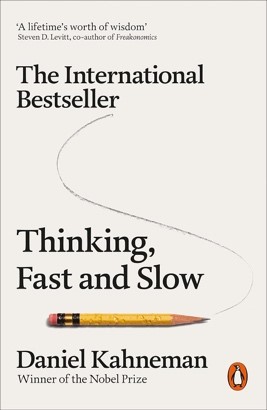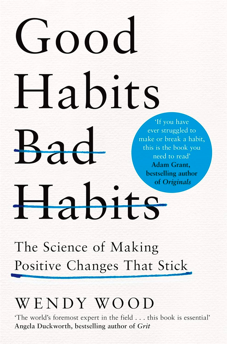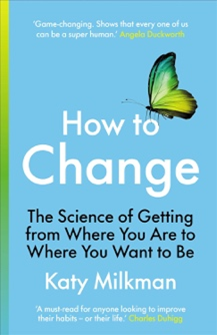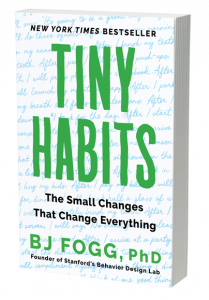(4 min read)
We talk a lot about habits. That’s because everything we do is based on behavioural science – the study of why we do the things we do.
In December, we talked about how habits are formed, why they are an essential part of everyday life, and why our habits can make us vulnerable to scammers and cyber criminals. It’s such an interesting part of being human, so this month we want to share our top reads on habit-forming behaviours – particularly at a time of year when we’re all making new resolutions and thinking about how we can change some of the habits we’ve picked up in the past 12 months.
How easy is it to change a habit?
The process of habit formation is not immediate; it requires repetition. Research by Dr. Philippa Lally shows that on average, it takes more than two months before a new behaviour becomes automatic. However, this can vary widely depending on the behaviour, the person, and the circumstances. Developing a gym habit depends on how close your gym is, and how easy it is to get to, for example. It probably takes less time to get used to a new coffee maker, which you might use several times a day.

Once formed, habits operate largely outside our awareness. They are efficient but can be double-edged swords; good habits can serve us well, while bad habits can be detrimental. The key to forming good habits lies in deliberately creating and maintaining a beneficial habit loop, with positive cues and rewards that reinforce the routines we want to automate. Breaking bad habits often requires disrupting this loop by removing cues, changing routines, or altering the rewards.
Here are our top three habit books, in no particular order. They’re all good. And you don’t need to be a scientist to read them – all with links so you can buy them and get reading!
Daniel Kahneman – Thinking, Fast and Slow

More than 10 years after its publication, Thinking, Fast and Slow has sold over 10 million copies, and established itself as a ground-breaking classic in the field of behavioural change and psychology.
The Financial Times says about the book: “There have been many good books on human rationality and irrationality, but only one masterpiece. That masterpiece is Thinking, Fast and Slow.”
This is a book that we recommend to learners and colleagues on a regular basis, because it is a great explanation of the way we are programmed to think – and gives practical advice on how we can influence and improve our decision making. And it’s an easy read too.
Daniel Kahneman is professor emeritus of psychology and public affairs at Princeton University and a winner of the 2002 Nobel Prize for economics (for challenging the assumptions of human rationality - there isn’t a Nobel prize for psychology).
Wendy Wood – Good habits, bad habits

One of the things this book explores is the reason why willpower alone isn’t enough to change your habits. It explains how ‘habit’ behaviour works, and is a readable dive into the way our brains are wired and how we can successfully make the changes we want to make.
Wendy Wood is a UK-born psychologist who is the Provost Professor of Psychology and Business at University of Southern California, where she has been a faculty member since 2009.
Katy Milkman – How to change

Katy Milkman is the James G. Dinan Professor at The Wharton School of the University of Pennsylvania and holds a secondary appointment at Penn’s Perelman School of Medicine. Her book, How to Change, was a New York Times pick for 2021 (the year it was published) and is fast becoming a standard text for anyone looking to change the way they do things.
Katy’s website says: “Whether you’re a manager, coach, or teacher aiming to help others change for the better or are struggling to kick-start change yourself, How to Change offers an invaluable, science-based blueprint for achieving your goals, once and for all.”
Wanting to change your own habits?

If you want to change your own habits or develop new habits (Gym at 6 am, anyone? No more chocolate biscuits at 11 am and 3 pm?) this book has many useful tips.
Plus, one very important one - make it easy! If it is easy to do, you’re far more likely to do it. Obvious perhaps but often overlooked!
Let us know how you get on with these books! As behaviour science professionals, we’re constantly reading and learning, so that we can make sure our online training reflects everything we know about habits and behaviour, and helps our learners to take a different attitude and approach to cyber security.
Sign up to get our monthly newsletter, packed with hints and tips on how to stay cyber safe.
 Mark Brown is a behavioural science expert with significant experience in inspiring organisational and culture change that lasts. If you’d like to chat about using Psybersafe in your business to help to stay cyber secure, contact Mark today.
Mark Brown is a behavioural science expert with significant experience in inspiring organisational and culture change that lasts. If you’d like to chat about using Psybersafe in your business to help to stay cyber secure, contact Mark today.